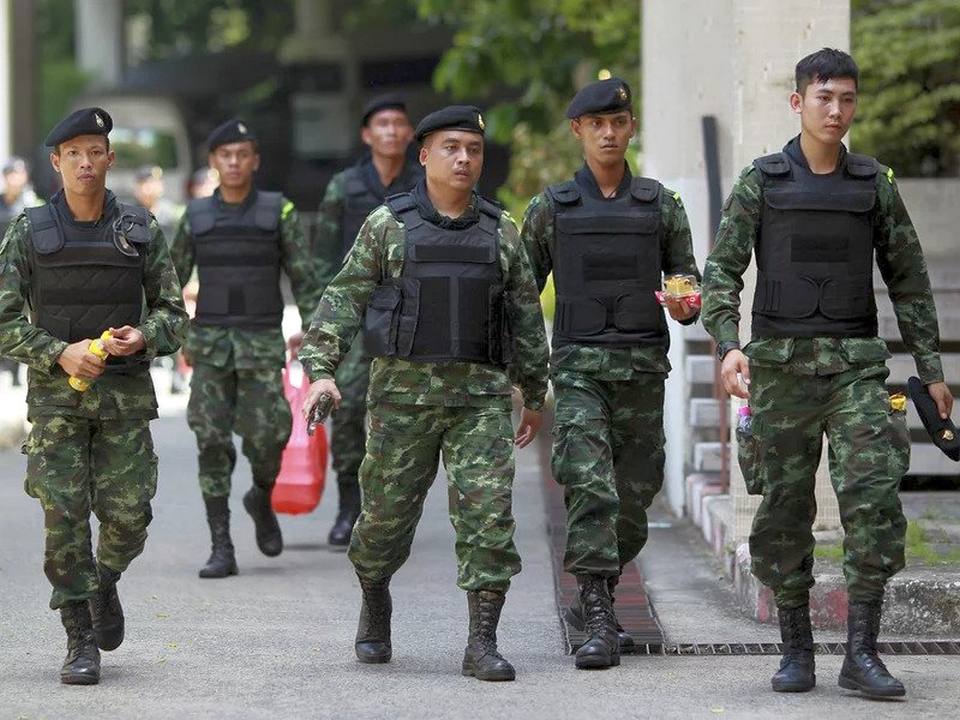
Deputy prime minister and one-time army leader Prawit Wongsuwon has now promised in his ongoing election campaign that the 2014 putsch was the last. No matter who wins the battle of the polls in May, a successor coup is a no-no. But one problem is that military spokesmen back in 2014 actually denied there had been a coup in the first place.
Following a long period of political unrest and street demonstrations in Bangkok, army leader Prayut Chan-ocha declared martial law on May 20 2014 via a television pool announcement. The caretaker government complained that it had not been consulted, but military spokesmen claimed a law of 1914 permitted the army such discretion and anyway denied a coup was underway. Troops appeared on the streets of the capital and some radio and TV stations were ordered to cease broadcasting.
On May 22, a tense five-hour meeting was held at army headquarters in Bangkok, but the elected government refused to resign. At that point, General Prayut said he would take "the supreme power" and most of the constitution was subsequently suspended apart from the section relating to the revered monarchy. The junta-authorized National Council for Peace and Order then replaced parliament as the decision-making body in the form of decrees.
But military spokesmen at the time in 2014 denied that the take-over was a coup. "The military action this time is different from the previous successful coups," junta-appointed Werachon Sukondhapatipak said at the Foreign Correspondents Club of Thailand in the capital. "Whatever you do, don't call it a coup. Normally, the civilian government sets up a civilian government, but now the military will restore peace and order, reconciliation, then elections and other systems to strengthen democracy," he claimed, according to reports in the Bangkok Post.Current political commentators say the danger for the May 2023 general election is that no clear winner will emerge in the money-orientated and murky waters of Thai politics. "And if Thai history has taught us anything, whenever there is a political vacuum, there's also a coup," said Ruchapong Chamjirachaikul, a legal expert. When it comes to the thorny issue of Thai military interventions, "never say never".



Inga kommentarer:
Skicka en kommentar